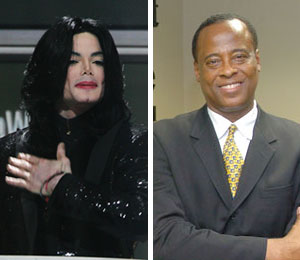This post was originally posted on http://www.ClearMatters.com
______________________________________________________
With graduation just about 60 or so days away for seniors, I wanted to share some thoughts with any students with an eye towards working in healthcare leadership once they graduate.
As part of the leadership team at Clear Medical Solutions, I get the opportunity to work with numerous interns that are in school. Over the years, I’ve developed some thoughts on who will succeed under the pressure that our industry brings and who will not…and who will find a job or not.
One of the key factors that I look for now when deciding who to mentor is their aversion to risk. Yes, I believe that practitioners in a clinical setting should avoid risk when treating patients (unless in a research setting), however in the healthcare leadership setting, the same old strategies just aren’t going to work anymore.
Safe is now risky!
Leaders are going to have to try new things and chart new paths, and that will take a “risk neutral” approach versus choosing a “risk aversion” path at all costs. One of my favorite writers had this to say about some college students that he ran into, and I see the exact same thing from many students that I find as well:
Anyway, they asked for my advice in finding marketing jobs. When I shared my views (go to a small company, work for the CEO, get a job where you actually get to make mistakes and do something) one woman professed to agree with me, but then explained, “But those companies don’t interview on campus.” Those companies don’t interview on campus.
Hmmm. She has just spent $100,000 in cash and another $150,000 in opportunity cost to get an MBA, but…
The second occurred today at Yale. As I drove through the amazingly beautiful campus, I passed the center for Asian Studies. It reminded me of my days as an undergrad (at a lesser school, natch), browsing through the catalog, realizing I could learn whatever I wanted. That not only could I take classes but I could start a business, organize a protest movement, live in a garret off campus, whatever. It was a tremendous gift, this ability to choose.
Yet most of my classmates refused to choose. Instead, they treated college like an extension of high school. They took the most mainstream courses, did the minimum amount they needed to get an A, tried not to get into “trouble” with the professor or face the uncertainty of the unknowable. They were the ones who spent six hours a day in the library, reading their textbooks. The best part of college is that you could become whatever you wanted to become, but most people just do what they think they must.
Is this a metaphor? Sure. But it’s a worthwhile one. You have more freedom at work than you think (hey, you’re reading this on company time!) but most people do nothing with that freedom but try to get an A.
Do you work with people who are still in high school? Job seekers only willing to interview with the folks who come on campus? Executives who are trying to make their boss happy above all else? It’s pretty clear that the thing that’s wrong with this system is high school, not the rest of the world.
Cut class. Take a seminar on french literature. Interview off campus. Safe is risky.” (The Rest can be viewed at http://bit.ly/9uqTxQ)
I agree with Seth, and for all those students out there looking to get into healthcare leadership, you will need to take some risks. Find a great leader, work an internship for free, build relationships, and think outside of the box… The education system cannot completely prepare you for what you will need to be in our industry.
For that you will need mentors and experience, and you will probably only find that outside your comfort zone. Think big. Take calculated risks. Be different!
About the Author: Aaron lives in Milwaukee, WI with his wife and two children and is the President & CEO of Clear Medical Solutions. When he’s not leading new initiatives at Clear Medical Solutions, he periodically takes on interim leadership or consulting projects. He enjoys teaching, writing, and sharing his passion for people and their healthcare.
 ly fairly recently that it became accepted within modern medical circles. It gained accepted recognition in 1944 when Michigan State University offered the first accredited music therapy program. Today there are more than 70 colleges and universities offering programs in music therapy and approximately 5000 music therapists.
ly fairly recently that it became accepted within modern medical circles. It gained accepted recognition in 1944 when Michigan State University offered the first accredited music therapy program. Today there are more than 70 colleges and universities offering programs in music therapy and approximately 5000 music therapists.